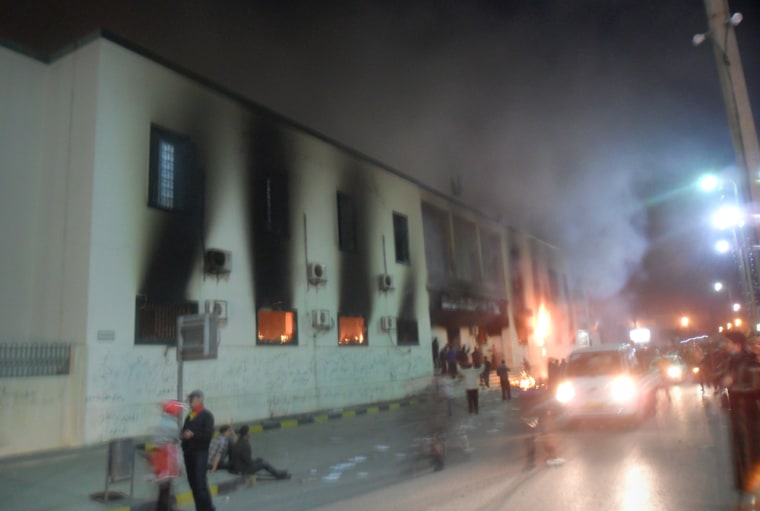For Iman, a 29-year-old American lying low in Libya, the last few days have been electric with tension.
She huddled with female family members and neighbor women inside a house as men stood guard to fight off any foreign mercenaries. They covered their children with pillows to protect them when they feared an attack on their home. One night, heavy gunfire rang through the air and she saw red balls of fire in the sky.
Those are just a few of the frightening moments that Iman, a Libyan-American who grew up in California and graduated from UCLA, has witnessed over the last few days in Misurata. The city -- Libya’s third largest -- is on the Mediterranean coast about 125 miles east of Tripoli, and is home to 300,000 people and iron, steel and textile factories, according to Libyaonline.com.
“It feels like a war zone,” said Iman, providing one of the first published accounts out of the city. (She asked that her last name not be used out of concern for her safety.) “Part of what the government has been doing is scare tactics; they’ve been trying to scare people so you’re in a constant state of fear.”
Rumors of imminent counterattacks continued to swirl in Misurata on Tuesday despite the fact that protesters said they had taken control of the city two nights ago from forces loyal to Libyan strongman Moammar Gadhafi.
“We started hearing fireworks, people started congratulating each other, the city was in a state of euphoria,” said Iman, who has lived in the North African nation for two years. But her sisters-in-law warned her, “It’s not going to be that easy. We’ve lived under this regime our whole life. He is not going to let it go this easy.”
Rumors of an imminent air raid reported by a television station and threats of potential attacks by foreign mercenaries brought into the country to quell the protests — conveyed to demonstrators by members of the armed forces — added to the unease, Iman said. So have text messages apparently sent randomly by a government-controlled cellular phone company warning people not to go outside, she said.
Helicopters flew over Iman’s neighborhood Monday night, prompting her to take her 1-year-old daughter to a relative’s home, joining her in-laws and eight of their children in hopes of finding safety in numbers.
“We were scared,” she said. “We had all the lights turned off and we had pillows covering all the kids just in case the glass shattered.”
At one point, when rumors escalated that counterattacks by foreign mercenaries loyal to Gadhafi were imminent, they gathered with other women in a neighbors’ house, as the men stood guard outside with metal poles. Other Libyan men were protecting companies around the city after hearing reports of looting, Iman said.
The foreigners who had worked with her husband evacuated the city on Monday.
“They actually said that the airport was so congested with people that there was standing room only,” she said. “They were standing shoulder-to-shoulder.”
Iman said her mother’s family lives in Tripoli, about 1,000 feet from Gadhafi's stronghold. The women were holed up on the second floor of the grandparents’ home, while the men were downstairs, armed with pipes and knives, she said.
One of their neighbors was shot at on the first day of the protests in Tripoli and another who was demonstrating has disappeared.
“It’s a very tense situation, they’re very worried and hopefully they will be OK,” she said.
Iman said she heard of plans for a large demonstration in Tripoli on Friday, after prayers, and knew of people heading there from her city and Bengazi in the east.
Things were calmer in Misurata, but the atmosphere remained tense.
“Even though the city is supposed to be under control … we have no idea what’s going to happen. He is not stable,” she said of Gadhafi.
Nevertheless, Iman said she was not planning to try and leave Libya.
“I feel it’s an important time for the country and I would like to be able to tell the story to my children one day.”
